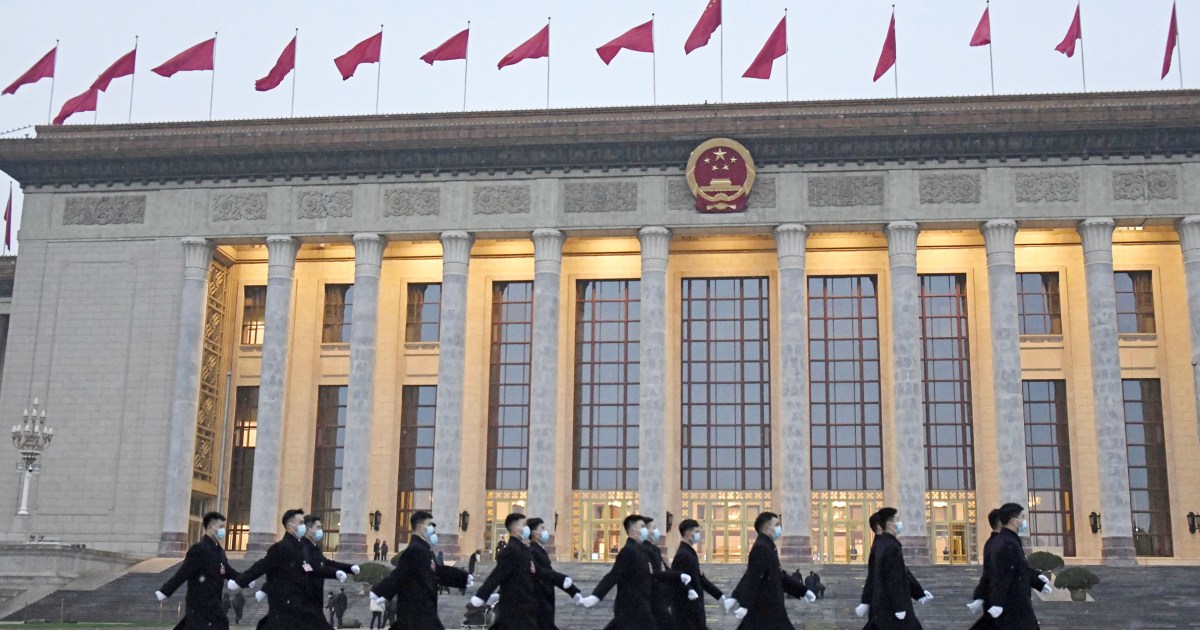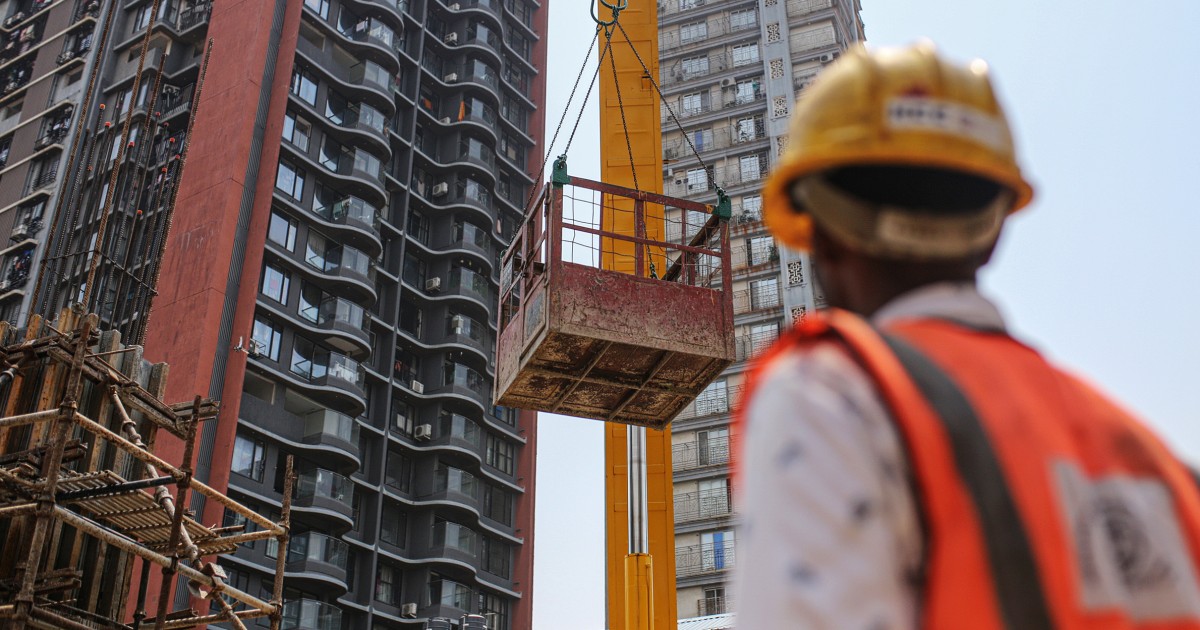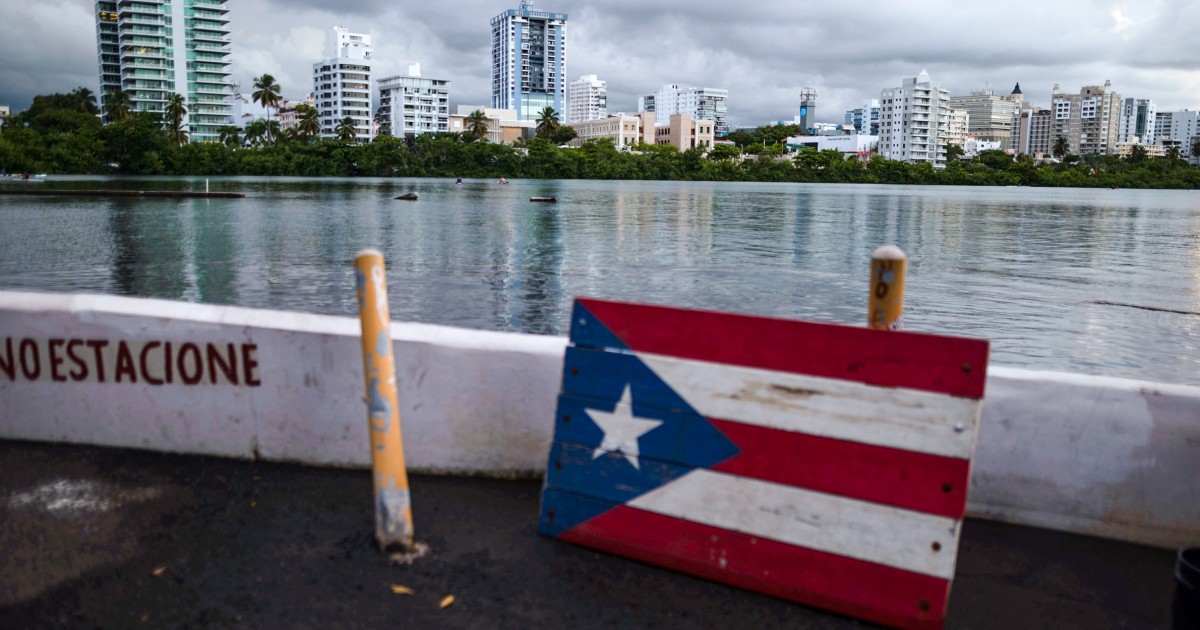DES MOINES, Iowa — Republican presidential candidates have held hundreds of events, shaken thousands of hands and covered practically every inch of highway across Iowa’s 99 counties.
And NBC News was along for the ride — not only listening to every word the White House hopefuls said, but also talking to hundreds of voters who turned up to listen to and ask questions of the candidates.
Those interviews colored in important details about Iowa and its GOP caucuses that help explain what will happen Monday night. From explaining former President Donald Trump’s enduring appeal on the right to highlighting the different coalitions the GOP candidates are building to spotlighting a new local issue that broke through during the campaign, here’s what we’ve learned from Iowans in this campaign.
Trump’s results, not his conduct, matter most to his evangelical supporters
In 2016, evangelical Christian voters in Iowa boosted Sen. Ted Cruz to a caucus victory over Trump. This time around, they have been among Trump’s strongest supporters.
“Being an Iowa farm boy, I didn’t give a whole lot of credibility to Donald Trump the New York billionaire mogul,” said Craig Gingrich, a 75-year-old part-time teacher from Cedar Falls. Gingrich, an evangelical, caucused for Cruz back in 2016.
And while Trump’s style didn’t align with Gingrich’s Christian values in the run-up to the 2016 Iowa caucuses, Trump’s substance in office convinced the septuagenarian that the former president is the right man for the job in 2024.
“Instinctively, you know, I wouldn’t. I wouldn’t really be attracted to Donald Trump. But he’s proven his credibility,” said Gingrich, who told NBC News that he’s become more religious with age and cited Trump’s Supreme Court appointments, who were instrumental in overturning Roe v. Wade in 2022.
Follow live results from the 2024 Iowa caucuses
“No conservative president has ever dreamed of doing [that], and he was able to do it,” Gingrich added.
Gingrich’s conversion is emblematic of a larger trend in the evangelical Christian community. According to the latest NBC News/Des Moines Register/Mediacom poll of Iowa caucusgoers, 51% of evangelicals pick Trump as their first choice. Back in 2016, Trump only won 22% of the evangelical vote, according to the exit poll, losing to Cruz by 12 points with the voting bloc.
Immigration is a major concern — and Trump is closely identified with the issue
Jim Voss, a 63-year-old from Clinton, said immigration reform is one of the top issues driving him to caucus for Trump this year.
“We need to shut the borders down, they’re allowing so many people in that can cause harm to people in this country. And the best thing to do is probably shut the border down, figure out who’s in here, and who shouldn’t be in here. And then Donald Trump has said that he will take care of that if he’s back in office.”
Voss’ point of view is widely held: NBC News/Des Moines Register/Mediacom polling shows immigration and border security ranks as one of the top concerns among likely Iowa Republican caucusgoers, with 80% of respondents listing it as extremely important.
Immigration was a big part of Trump’s political rise in 2015 and 2016. And his performance has also become a talking point among 2024 rivals like Florida Gov. Ron DeSantis, who argues that he’ll actually be able to complete the wall and require Mexico to pay for it, as Trump said in his first campaign. Businessman Vivek Ramaswamy also made border security a core tenet of his campaign.
Trump’s base started softer — but was galvanized by his mounting legal battles
Trump supporters throughout Iowa say they view the former president’s indictments as a weaponization of the Justice Department and his gag orders as an unfair attempt to silence him.
Katelyn Hirsch, a 24-year-old from Moville, Iowa, will be a first-time caucusgoer and plans to support Trump on Monday. She said she views his mounting legal battles as attacks aimed to keep him off the ballot.
“I know I’m voting for him, I’m writing him in no matter what,” she said. “I just hope it doesn’t cloud other people’s opinion of Trump, because he’s doing the work that needs to be done,” she said.
The latest NBC News/Des Moines Register/Mediacom poll underscores the feeling: Among Trump’s base, 35% say a criminal conviction would make them more likely to support him, as Trump painted the cases against him as an attack on his supporters over the last year.
DeSantis has seemed to acknowledge that Trump’s indictments have made Republicans more sympathetic to the former president, though the governor said that just because Trump’s been treated unfairly doesn’t mean he deserves re-election.
“You can appreciate what Donald Trump did. You cannot like the people who are doing this to him, the DOJ and these prosecutors in New York and all this, 100%. It’s unfair. But it doesn’t mean it’s the right thing for the country to nominate him to be our candidate in 2024,” DeSantis said at an event in Clive, Iowa, this month.
Shari Smith, a voter from Marshall County, said she’s suspicious of the timing of Trump’s legal proceedings coinciding with his 2024 campaign and believes they’re being used to distract voters.
“The indictments I feel are unfounded, as have been all the other ones, which have proved to be unfounded. I don’t feel like President Trump did anything that was illegal,” she said after attending an event for DeSantis in August.
Haley’s ranks boosted by Biden 2020 supporters
Angela Boelens, 54, is all-in on former United Nations Ambassador Nikki Haley. But in 2020, the Dewitt resident voted for Joe Biden.
“I’m hands down Nikki Haley, we need serious politicians in office. She’s clearly very knowledgeable. And she’s willing to speak the truth, even when the truth is not what people want to hear,” said Boelens, who’s a professor at a college in Illinois.
It’s clear at Haley’s events that she’s attracting a different type of caucusgoer, and the latest NBC News/Des Moines Register/Mediacom poll of Iowa caucusgoers showed this is not an isolated conversion on Haley’s part. In the poll, almost half of Haley’s Iowa backers say they’ll vote for Biden over Trump in a 2024 general election matchup. Likewise, the survey results show half of her Iowa caucus supporters are independents or crossover Democrats.
If Haley hopes to perform well on caucus night, it will largely be on the back of a cross-partisan coalition, not just rank-and-file registered Republicans.
Boelens started a nonprofit group called Iowa Nice, which settles Ukrainian refugees in the Hawkeye State. She’s alarmed by the GOP’s rhetoric around the war in Ukraine and the possibility of another Trump presidency.
“He simply has not demonstrated that in his words and his actions,” said Boelens of Trump’s leadership capabilities, adding: “I think at the end of the day, your actions and your words are important. And I think that we would be more attracted in this state to true kindness.”
Anti-Trumpers wanted a clear-cut alternative. It never came.
Nicole Woodley, 43, is a pastor and a farmer from Clarion in eastern Iowa. And like so many “Never Trumpers,” for whom Woodley caucuses Jan. 15 will depend primarily on the person who has the best chance to stop Trump.
She was still sorting out exactly who that might be this week.
Asked if she’d support DeSantis or Haley less than a week out from the Iowa caucuses, Woodley was unsure. “Either one,” she said. Her most important criteria? “Being able to beat Trump.”
Since the summer, anti-Trump conservatives have yearned for a Republican to emerge as an alternative to the former president. At first, DeSantis appeared to be taking on that role. But polling stagnation and the rise of Haley have muddied the waters, making the clear Trump alternative unclear.
And with just hours to go until the Iowa caucuses, “Never Trumpers” are split on whom to back.
Inflation, economy are top of voters’ minds
While immigration is a driver in the GOP contest, Iowans overwhelmingly say that pocketbook issues are their top concern heading into the caucuses. Voters frequently pepper candidates with questions about lowering prices, and the economy has been a constant theme in all of the Republican contenders’ stump speeches.
“I want to know how I’m going to be able to live the rest of my life without having to worry about, am I going to be able to afford that next tank of gas?” said Anita Hemingway, from rural Johnson County. “And how am I going to make sure my pantry’s stocked without breaking the bank, without having to dip into savings? Some of us are not fortunate to have savings. That’s the way it’s going.”
Hemingway’s husband, Phil, added, “Inflation is eating away at everyone.” He is planning to shut down the auto repair business he’s run since 1997 because of economic factors. While he was able to maintain his business through a flood in 2008, he said, rising costs are now forcing him to close his doors.
“This ‘Bidenomics’ is killing everybody and it’s killing me,” he said. “It’s hard enough in good times to run a one-man shop, let alone when you can’t keep up with inflation and rent.”
Many Ramaswamy fans are Trump supporters deprived of retail politics
MAGA hats and Trump T-shirts are a staple of Ramaswamy’s Iowa events. The 38-year-old businessman has successfully lured many of Trump’s most ardent supporters to his gatherings, but that doesn’t necessarily mean they’re going to caucus for him.
“My ideal ticket would be Trump for four years and Vivek for eight years,” said Bob Klaus, 75, from Cedar Rapids. The “12-year-plan,” as many Trump supporters call it, has become a commonly held belief among many of Trump’s base who show up at Ramaswamy events.
Klaus has become a regular at Ramaswamy events in Iowa, but while he thinks the up-and-comer is the future of the Republican Party, he’s sticking with Trump in 2024.
“I think they stole the election from him, so I almost feel like part of the reason I like Trump is because I feel like he deserves another four years,” he explained.
For Trump supporters, Ramawamy’s style and philosophy feel familiar. Ramaswamy often bills himself as “the future of America First.” And not only does he feel familiar to Trump supporters, but he is also familiar after barnstorming the state with hundreds of events.
Ramaswamy has visited each of Iowa’s 99 counties at least twice this cycle, while Trump visited the Hawkeye State relatively rarely despite maintaining a dominant polling lead. In the meantime, Ramaswamy provided fodder for Trump supporters in Iowa deprived of retail politics. If he overperforms Monday night, it would be a sign of the enduring power of face-to-face interactions in increasingly online political campaigns.
Iowa’s GOP establishment looks impotent
Iowa Gov. Kim Reynolds broke tradition. Governors typically don’t endorse in the caucuses, instead shepherding GOP presidential hopefuls through the grueling nominating process. But her endorsement of DeSantis broke the mold — and was emblematic of an Iowa establishment hellbent on stopping Trump.
It looks like it didn’t work.
Reynolds was joined by high-profile evangelical kingpin Bob Vander Plaats in endorsing DeSantis. But other prominent politicos have also had their say, with more than 90 local leaders, state legislators and Iowa influencers stepping out for DeSantis, too.
But many Iowans simply said they weren’t moved by that sort of thing. Waterloo’s Diana Arter, 74, told NBC News in December as she was picking between Trump and DeSantis: “I have to make up my own mind who I think will do a better job and hope and pray that I make the right decision.”
Thus far, all of DeSantis’ endorsements have been more bark than bite, coinciding with, at best, a stagnation in the polls. On caucus night, it’s his expansive ground game that he’ll be leaning on for a good showing more than the high-profile support.
The local issue that forced candidates to balance support for local industry and individual rights
For months, attendees at campaign events pushed candidates with questions about using eminent domain to install underground carbon-capture pipelines across the state, in what’s become a critical test of the GOP contenders’ support for both the ethanol industry, which is critical to many of their livelihoods, and landowners’ rights.
The mix of local issues and national campaigning in Iowa is nothing new. But the pipeline proposals have added a new dimension to the GOP campaign this year.
The proposed underground pipelines would move carbon dioxide emitted from ethanol and other industrial plants in Iowa and sequester them out of state. Advocates say they’ll make the ethanol industry more sustainable, but some farmers and landowners on the projected route of the pipelines are concerned that the pipeline companies may use eminent domain, which allows the government to take private land for public projects, to force construction beneath their property even if they don’t want it.
Of the three companies that initially planned to build CO₂ pipelines through Iowa, Navigator CO2 Ventures has canceled its project, Wolf Carbon Solutions does not plan to use eminent domain, and state regulators have not yet granted Summit Carbon Solutions permission to start construction or to use eminent domain.
“We’re outraged. If it happens and they’re able to take our land by eminent domain, it’s horrendous, maddening, more than anything. But we will still continue to fight it,” said Lisa Dircks, who lives on the projected pathway for Wolf Carbon Solutions’ pipeline. “It’s shameful that these companies just come in and want to take everything we’ve worked our tails off for.”
In November, she received an offer for a voluntary easement, which she says she will never sign. While Wolf is planning to acquire the land for its pipeline exclusively through voluntary easements, Dircks worries that could change. She said it’s imperative that presidential candidates have an understanding of the CO₂ pipelines and is planning to be a caucus captain advocating on behalf of Ramaswamy, who frequently mentions the pipelines on the trail and criticizes the possible use of eminent domain to install them.
Ramaswamy’s focus on the issue in northwest Iowa has been another reason his campaign has long insisted he could overperform.
Fear of China pervades the campaign
China is often one of the biggest national security threats that voters bring up on the campaign trail in the Hawkeye State. And all of the major GOP presidential candidates have spent the campaign advocating for reducing manufacturing dependence on Asia and increasing domestic production.
Gary Pitts, from rural Cumming, says his top foreign concerns are resurfacing aggression from Russia, competition with China, and threats from Iran and North Korea.
Pitts, who is planning to support Trump, said that not only is China responsible for stealing American technology, but that he also believes recent tariffs have unfairly favored it.
“You go to Menards and it’s all made in China, you can’t find anything that’s not made in China,” he said. “And I’m sure there’s lots of other places, Target or any stores you go to, it’s all made in China, it’s an imbalance of trade.”
Watching internet conspiracy theories take root
Outside a Trump rally in Waterloo in the fall, dozens of Iowan Trump supporters regurgitated a conspiracy theory that was bubbling up online.
“How come Barack Obama didn’t move out of Washington, D.C.?” asked Nick Rooff, 58, of Waterloo.
“Obama’s behind the scenes,” said Logal Orr, 27, a veteran from Osage, speculating who’s in true control of the Biden White House.
Asked who he thinks is influencing Biden’s decision-making, James Jacobs, 73, was unequivocal: “I think it’s Obama, to be honest with you.”
The root of the discourse stemmed from an online conspiracy theory that Obama is secretly still in control of the White House. But as the theory leapt from the internet into the real world, Trump helped make sure it would take root.
“It’s never been worse than it is now under crooked Joe Biden and, frankly, his boss, Barack Hussein Obama,” Trump told a crowd of hundreds at a campaign stop in Wolfeboro, New Hampshire. “I think it’s his boss.”
This feedback loop has repeated itself time and time again among Trump’s online supporters in Iowa, and more recently in Ramaswamy’s campaign. A conspiracy will percolate on the web, it’ll become the topic chatter among Trump’s supporters, and then Trump will say it out loud at a rally, catalyzing the theory and spreading it like wildfire.











